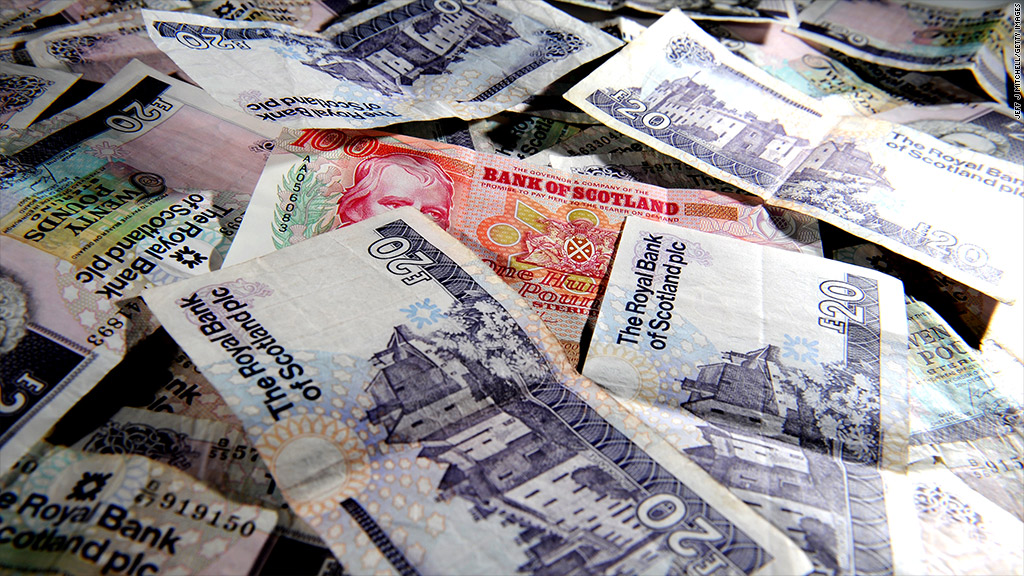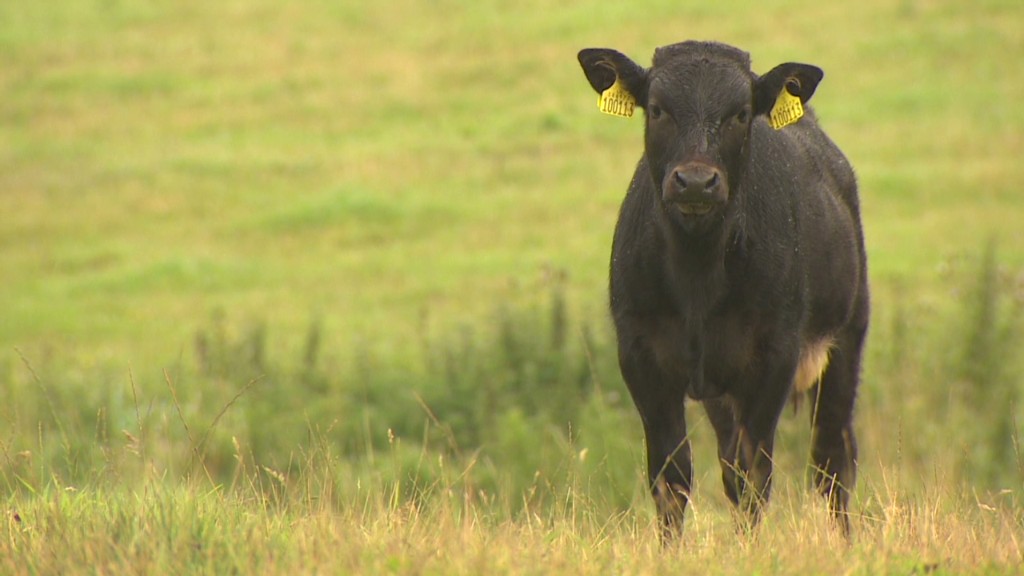
It's a union that's lasted 307 years, but England and Scotland could be heading for the divorce courts later this year.
Arguments over money tend to generate the most heat in any separation, and the possibility of a Scottish vote for independence in September is already sparking a furious row between London and Edinburgh.
If Scotland votes to go it alone, there will be plenty of big questions about the U.K. economy. How will national debt be divided? Who gets what in terms of wealth from North Sea oil and gas? What will happen to Scotland's outsized banking sector?
But the Scottish government's central economic proposal -- to keep the pound as part of a new sterling zone -- seems dead in the water.
Related: Scotland's bid for independence
In a speech in Edinburgh on Thursday, U.K. Chancellor George Osborne said the nationalists' plan was a non-starter.
"People need to know -- that is not going to happen," he said. "If Scotland walks away from the U.K., it walks away from the pound."
Keeping a sterling zone stable would require Scotland to cede precisely the kind of political, economic and financial autonomy its pro-independence leaders say they want to reclaim from London, he warned.
Without that, Scotland would be exposed to the risks highlighted by the eurozone crisis, and the rest of the U.K. would potentially be on the hook to bail out Scotland and its banking sector, which is 12 times as big as GDP.
"We got Britain out of the eurozone bailouts. Now we'd be getting into an arrangement that was just the same," Osborne said.
Related: Europe's economy: What could go wrong?
So what are the alternatives, assuming Scotland votes for independence and refuses to accept London's terms for keeping the pound? There are a few, but none are particularly attractive.
For years, the nationalists' plan was to take Scotland into the European Union as an independent state, and then adopt the euro. They still want EU membership but the eurozone crisis killed talk of joining the single currency.

Scotland could opt to continue using the pound, in the way countries such as Panama, Ecuador and El Salvador have adopted the U.S. dollar. That could shore up confidence in the economy and ensure continued close integration with the U.K.
Related: The world's most expensive whisky
But the newly-born state would have no control over monetary policy or its exchange rate, and would have no claim on the financial backstop provided by the Bank of England.
The last option would be to establish a new currency, managed by a new central bank. That would give Scotland complete independence but would likely mean higher interest rates, and rigid control of spending to ensure investors retain their confidence.
Opinion polls still show a clear lead for those against independence, although the gap has narrowed in recent surveys.
